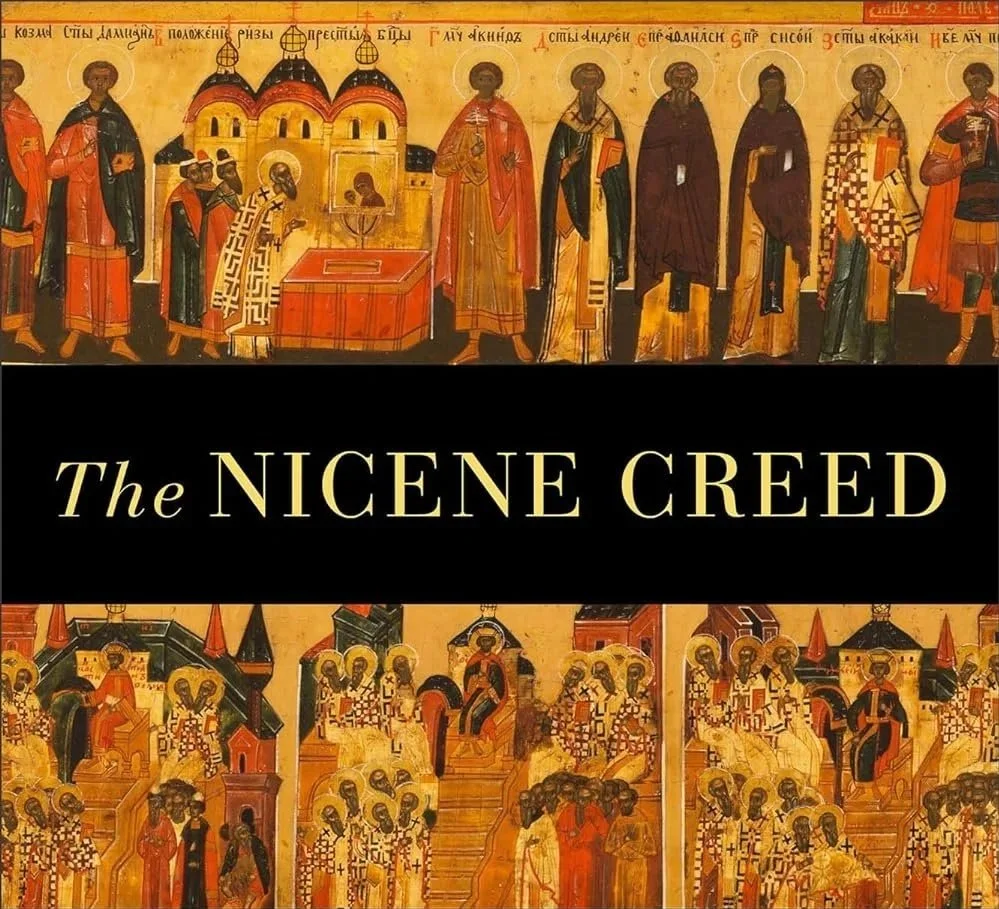On Wednesday, September 10, we have our first online colloquy, and our topic is the Nicene Creed. The Nicene Creed was constructed by the Council of Nicaea in 325 AD, and thus, 2025 is the 1700th anniversary of this text that we profess on Sundays at the mass. The zoom link for the gathering is now on the website, and I am pleased that so many people have bought the book for this first colloquy (The Nicene Creed: A Scriptural, Historical, and Theological Commentary, by Jared Ortiz and Daniel A. Keating). There are still five available books for purchase in the Parish Hall. With this text we will discover how the Nicene Creed arose from the experience of the Early Church and their devotion to the Holy Scriptures, as well as the challenges faced due to various heresies of the time.
When we gather again for the second colloquy on November 12, our focus will continue to be the Nicene Creed, but it will be from a different angle. The text for that gathering is The School of Charity: Meditations on the Nicene Creed by Evelyn Underhill (1875-1941), the great Anglican contemplative and mystic. She wrote these meditations for a retreat she gave at the place of her conversion to Christianity.
It will be helpful to have read the texts before attending the online sessions; however, it is also acceptable to attend the sessions without having read the texts yet. Some may prefer to come for the online discussion before reading the books to help their understanding. Our hope is that these sessions will provide valuable insights into the Creed that is a pillar of our Christian faith.
Over the course of the first few centuries of Christianity, four distinguishing marks of the Christian faith came into being: the Holy Scriptures of the Old and New Testaments; the Sacraments of Holy Baptism and Holy Communion; the Nicene Creed; and the Historic Episcopate. Where these four marks of the faith are thriving, the Church is flourishing in the Name of Jesus Christ.
In our society, as well as within Christianity, it can be popular to de-emphasize the Creed, or anything else that defines truth objectively. Relativism pervades our society, elevating the individual over the community, and we see this not only within religion, but also in the current attacks on science and medicine. The early church gathered for councils to formulate the Creed in order to safeguard Christianity from all sorts of intellectual dangers. Our challenges today are not so different.
Father Paul Lillie +
